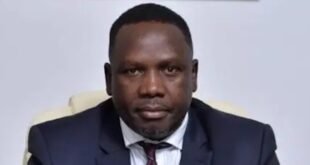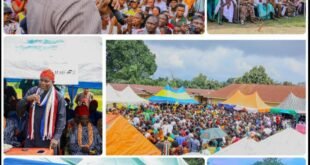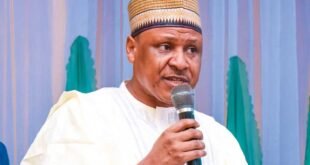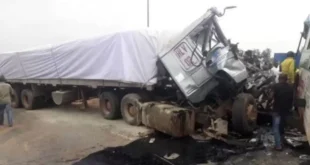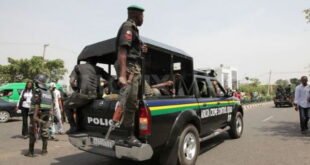The return of Muhammadu Buhari in 2015 did not lack historic. A former military ruler became the elected president, driving a wave of public dissatisfaction and promises of change.
For many Nigerians, he symbolizes discipline, integrity, and hope of national renewal. However, the presidency of two periods will be revealed as paradoxes: marked by ambition and inertia, determination and silence, nationalism and authoritarian deviations.
His inheritance remained very polarized, praised by several people because of anti-corruption rhetoric and condemned by others because of economic stagnation, increasing insecurity, and democratic decline.
Below are some of the most decisive moments in BUHARI Public Life:
1. “Baba Go Slow”: Delay of Ministers who regulate the tone
- Incident: After taking a position in May 2015, Buhari delayed the appointment of ministers for almost seven months.
- Impact: This prolonged gap creates uncertainty in financial markets and policy paralysis in government.
- Analysis: While Buhari maintains the delay as a complete test to ensure credibility, it strengthens the perception of doubts and determine precedents for the response of the government which is often slow to national problems.
2. Massacre of Zaria: Deadly Estimation of Shia Muslims
- Incident: In December 2015, the Nigerian military killed more than 300 members of the Islamic Movement in Nigeria (IMN) after confrontation in Zaria.
- Impact: The attack triggered national and international anger. The victims were buried in mass graves, and IMN leader Ibrahim El-Zakzaky was detained for years.
- Analysis: This episode highlights concerns about the use of excessive strength, lack of accountability in the military, and sustainable religious tensions. Buhari’s silence about this issue is seen as secret agreement.
3. Light Lales of Judges: Anti-Corruption or Judicial Intimidation?
- Incident: In 2016, the State Service Department (DSS) carried out midnight attacks in the residence of senior judges, accused corruption.
- Impact: Civil society groups condemn the raids to undermine the independence of the judiciary.
- Analysis: While framed as part of an anti-corruption campaign, operations deepen the fears of executive outreach and selective justice. This marks the turning point in the perceived erosion of democratic institutions.
4. Controversy Plagiarism: Integrity is questionable
- Incident: The speech “Changes in Buhari Begins With Me” was found to reflect the 2008 Barack Obama 2008 victory speech.
- Impact: The presidency blames “staff who are too enthusiastic,” but the revelation underestimated the image of Buhari as a person who had personal integrity.
- Analysis: For a leader whose legitimacy relies on high moral land, the scandal is embarrassing and symbolizes deficiencies in the culture of government.
5. Prolonged medical absence: Leadership in Limbo
- Incident: Buhari spent a broad time abroad for medical treatment, including the 152 days absence in 2017.
- Impact: This absence causes uncertainty, conspiracy theory, and governance emptiness.
- Analysis: Presidential offers a little transparency, triggers speculation and erode public trust. Although Vice President Osinbajo occasionally served in acting capacity, many Nigerians questioned who was really responsible.
6. #lazynigerianyouths: Comments that trigger generation of anger
- Incident: In the 2018 Commonwealth Forum, Buhari said that many Nigerian youths “did nothing” but expect government benefits.
- Impact: The counterattack was immediately. Hashtag #lazynigerianyouths trends globally, when Nigerian young people repay narratives with entrepreneurial stories and resilience.
- Analysis: The statement revealed generational termination and contributed to the gap of credibility that widening between administration and young citizens.
7. Twitter Prohibition: silencing differences of opinion in the digital age
- Incident: In June 2021, Nigeria forbade Twitter after the platform removed the tweet by Buhari.
- Impact: The ban lasts for seven months, hampering digital activism, journalism, and online business.
- Analysis: Although framed as an act of national security, the step is widely considered a retaliation of differences of opinion. This gives rise to alarm about freedom of speech, the press of freedom and digital rights under the government of Buhari.
8
- Incident: On October 20, 2020, the army allegedly fired at the peaceful protesters at the Lekki toll gate.
- Impact: Apart from witness accounts and increased evidence, the government denies making mistakes. BUHARI’s national address ignores the shooting completely.
- Analysis: The incident was a symbol of brutality and state impunity. The government’s failure to recognize or investigate violence significantly damage its democratic credibility.
9. Disaster Re -Design Naira: Economic Reform is wrong
- Incident: Ahead of the 2023 election, Buhari approved a sudden reflection of currency to curb the voting and illegal money.
- Impact: The launch caused widespread chaos – the scarcity of accidents, business closure, and civil riots. The Supreme Court then decided that the policy was not constitutional.
- Analysis: Despite good intentions, the lack of coordination with stakeholders converts reforms into disturbances. It highlights governance to decide and weaken public trust in institutional decision making.
 JamzNG Latest News, Gist, Entertainment in Nigeria
JamzNG Latest News, Gist, Entertainment in Nigeria
